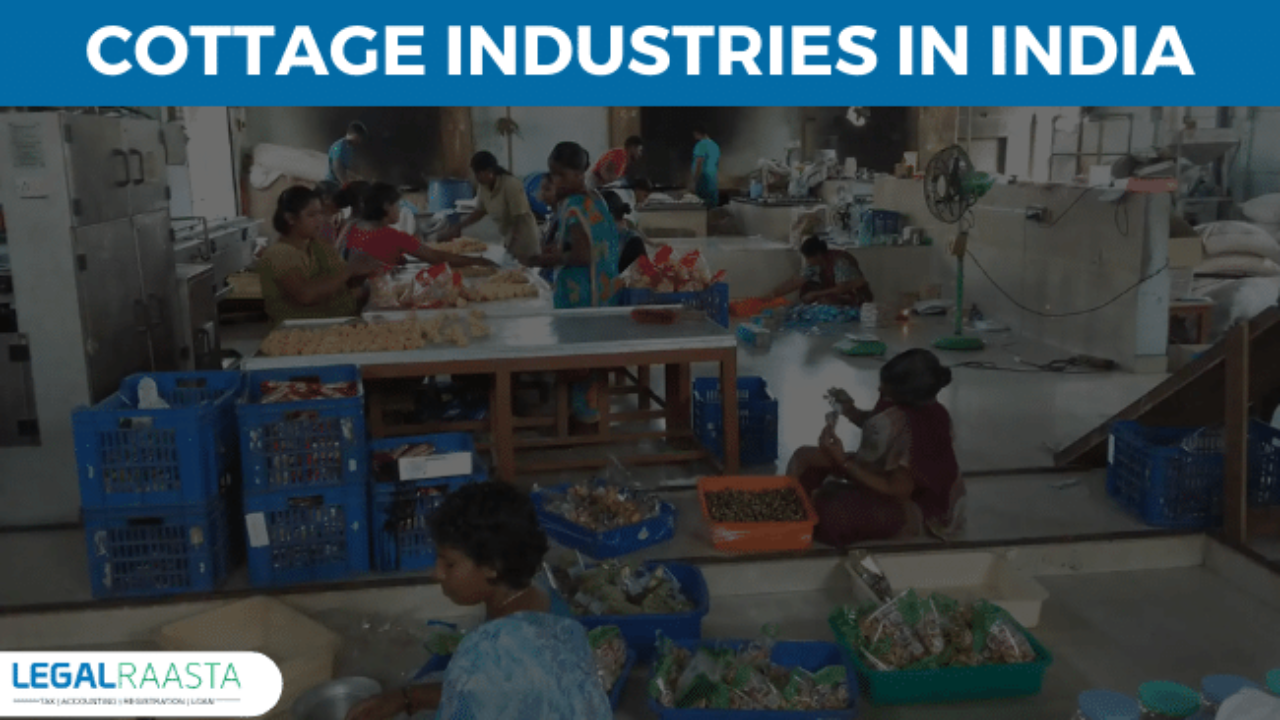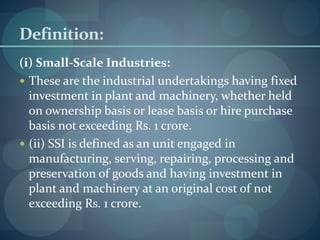Small scale industries (SSIs) are a type of business enterprise that operate on a smaller scale compared to large scale industries. They are characterized by their relatively small size, low capital investment, and use of labor-intensive production methods. SSIs play a crucial role in the economic development of a country as they provide employment opportunities, contribute to the gross domestic product (GDP), and promote balanced regional development.
In most countries, SSIs are defined based on the investment in plant and machinery. For example, in India, SSIs are defined as enterprises where the investment in plant and machinery is less than Rs. 10 crore. In the United States, small businesses are defined as those with fewer than 500 employees. In the European Union, small enterprises are those with fewer than 50 employees and medium-sized enterprises are those with fewer than 250 employees.
SSIs are found in a wide range of sectors, including manufacturing, service, and agriculture. They produce a diverse range of products, such as textiles, leather goods, food products, and engineering goods. SSIs also play a vital role in the service sector, providing services such as transportation, repair, and maintenance.
One of the main advantages of SSIs is that they are flexible and can quickly adapt to changing market conditions. They also have the ability to innovate and introduce new products or processes, which can give them a competitive advantage in the market. SSIs also have a lower environmental impact compared to large scale industries, as they tend to use less energy and raw materials in their production processes.
However, SSIs also face several challenges. They often lack the financial resources and technical expertise of larger firms, which can make it difficult for them to compete in the market. They may also struggle to access credit and other financial resources needed to invest in new technologies or expand their operations. In addition, SSIs may face regulatory barriers and bureaucracy that make it difficult for them to comply with regulations and access markets.
To support the growth and development of SSIs, governments often implement policies and programs to provide access to finance, technical assistance, and other resources. In addition, governments may provide tax incentives and subsidies to encourage the development of SSIs. For example, in India, the government has implemented a number of policies and programs to support the growth of SSIs, including the Credit Guarantee Fund Scheme and the Micro, Small and Medium Enterprises Development Act.
In conclusion, small scale industries are a vital part of the economy, providing employment, contributing to GDP, and promoting balanced regional development. While they face challenges, governments and other organizations can provide support to help them overcome these challenges and grow and thrive.

:max_bytes(150000):strip_icc()/industry-v1-c4d5df3addcc42a0b738545c1b75e421.png)





